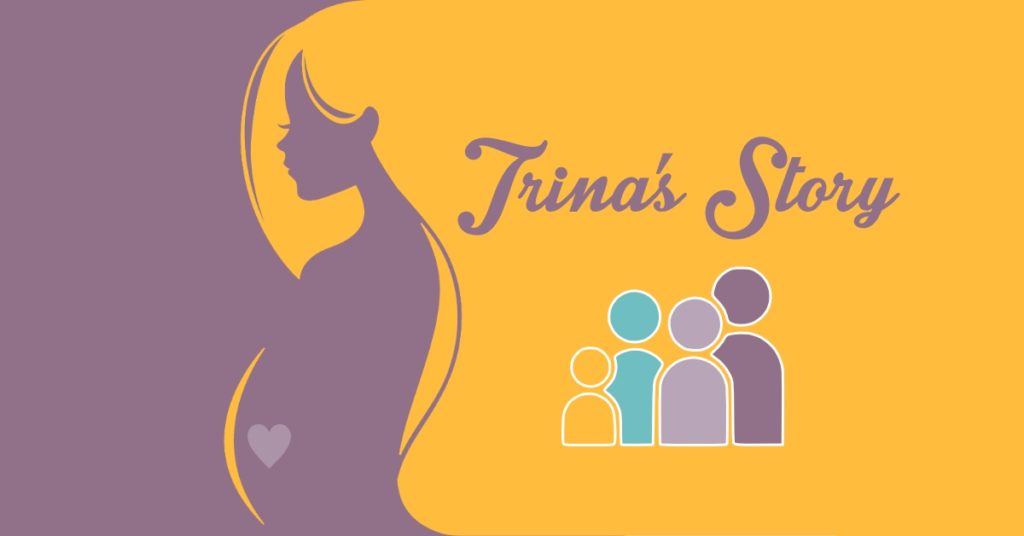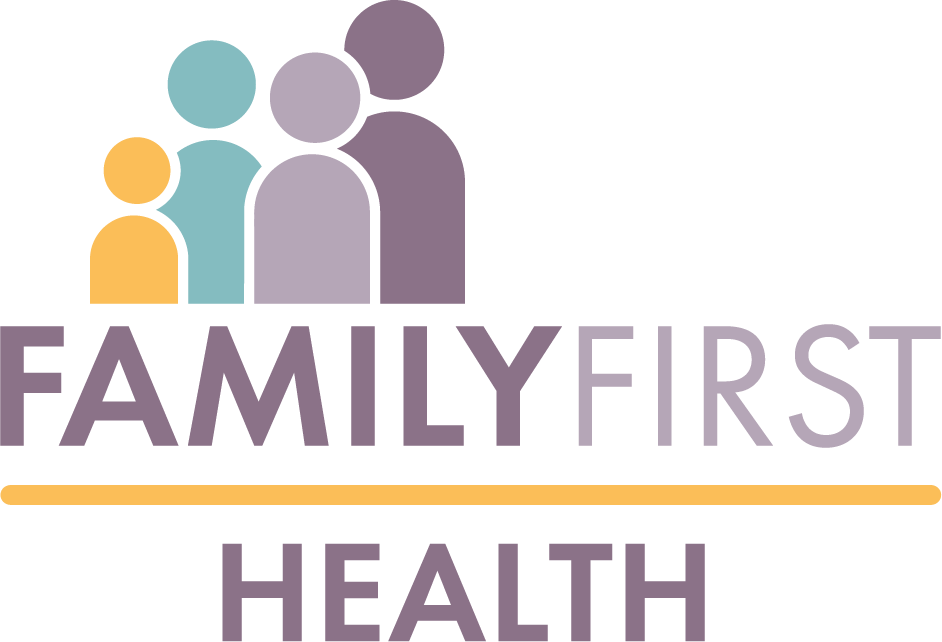
“We’re empowering first-time mothers to transform their lives and create a better future for them and their babies.â€
Julie Williams*, RN, Family First Health
Every young mother we work with has a story filled with a long series of challenges that led her to our Nurse-Family Partnership program. This is certainly true of Trina*, a pregnant 18-year old from York County who was in desperate need of care.
Our Nurse-Family Partnership program, or NFP, is Family First Health’s dedicated support program for mothers in need. We help these women find their way through pregnancy and the first stages of motherhood. Whatever they need, whether it’s medical care, safe housing, social services, therapy, employment, or any other resource to protect their health and the health of their baby, we find it for them.
For most of our patients, the resources they’re missing are symptoms of a larger challenge: poverty. We work with young mothers to remove the grip poverty has on their lives. Trina’s story is an incredible example of the work our nurses do each day to end this cycle and ensure that babies who begin their lives in poverty have the chance to escape it and live a healthy life.
Trina’s Story
Trina was newly pregnant when she began working with Family First Health’s NFP registered nurse, Julie Williams.
“During my first visit with Trina, she told me about how she had spent her entire life in foster care, attending 20 different schools by the time she was 16,†Julie said. “She went through significant trauma and abuse as a child. Trina had been living on the streets for months before going to a shelter just prior to becoming pregnant. Trina then confided in me that her pregnancy had been the result of a rape during her time in the shelter. When I left that appointment, I had to sit in my car and collect myself. I somehow had to wrap my mind around what she had just shared with me.â€
Julie said she couldn’t help but admire the young woman’s perseverance.
“What I admired about Trina immediately, and even more so after hearing her story, was her resilience,†Julie said. “She was both excited and scared about having a baby. I kept thinking about how thankful I was that she wanted to be a part of our program. I was instantly ready to get started and do everything I could to help Trina and her baby. Then, the world shut down from COVID-19.â€
Prenatal Care During a Pandemic
When Pennsylvania went into lockdown to fend off the COVID-19 pandemic, social distancing measures and the diversion of healthcare resources to only the most critical of needs meant that a lot of services were on hold. Simple things like attending a doctor’s visit to check on the health of the baby was now a challenge.
“I knew that Trina needed to be wrapped in support,†Julie said. “I just did not know how that would be possible with the new social distancing guidelines. My goal was to get every agency working with Trina on an email chain so we could at least communicate and be on the same page.â€
That email chain turned into an Integrated Practice Team or IPT. An IPT is a multi-disciplinary, community-oriented group of people working together to identify and resolve issues, and make recommendations.
Julie held the group’s first IPT meeting over the phone and pulled everyone in. Trina, along with her caseworker from the shelter, housing agency representatives, mental health workers, hospital social workers, and Pennsylvania’s Cyber School officials were all talking and brainstorming the best ways to get Trina into safe housing and to the necessary physician and therapy appointments she needed. Within a week, housing was in place, transportation to and from appointments was arranged, and therapy began.
Now that Trina is surrounded by the resources that Family First Health provides, she works with Julie regularly to prepare for motherhood.
“Trina didn’t grow up with a family,†Julie said. “She doesn’t know what it means to be a parent. She also has challenges related to learning and retaining information. So, for Trina, in addition to the work she does with me and Family First Health, we have her enrolled in online parenting classes. I’ve taught her things like how to bathe a baby and change a diaper. Then she receives repetition through the classes to help her retain what she’s learned.â€
Caring for Our Mothers Requires That We Earn Their Trust
Providing this level of care for mothers like Trina requires trust.
“It’s been proven that nurses are the most trusted people within the healthcare system from the patient’s perspective,†Julie said “When I or any of our program nurses work with patients, no question is off-limits. We’re here to help. There’s no judgment.â€
Julie said she believes it’s the emotional and mental aspects of the program that made the biggest impact on Trina’s health.
“She’s had so many people in and out of her life and is, understandably, untrusting of professionals,†she said. “In our case, however, I visit with her every week and I’m one of the few people in her life who’s listening to her. If I meet with Trina to talk about labor and delivery, but she’s having a bad day and wants to share what’s on her mind, then that’s what we talk about.â€
Once the pandemic set in, though, Julie lost her ability to visit Trina at home. It was Family First Health’s prior investment in telemedicine that became Julie’s biggest asset and what she leaned on to care for Trina during the shutdown. Being able to still see Trina’s face and maintain a visual connection helped build the trust she needed to provide Trina with the best possible care.
Teaching Young Mothers How to Care for Their Babies Has the Power to Break Cycles of Poverty
Our NFP nurses make an incredible impact on the lives of the mothers and babies they support. At the same time, however, their support extends well beyond their patients and ripples across each of the neighborhoods and communities we serve.
This ripple effect is most evident when we look at the impact that our Nurse-Family Partnership makes on poverty. Many times, the support our patients need most after childbirth is finding employment and adequate childcare. Teaching young mothers how to be independent and provide for their child creates an intervention to the otherwise compounding consequences of persistent poverty.
By breaking the cycle of poverty, our Nurse-Family Partnership program is reducing each mother’s chance of having subsequent pregnancies, supporting them to become self-sufficient, and helping them give birth to and raise healthier babies.
And, it’s in the quality of life of each baby we care for that we see our program’s biggest impact.
“Imagine a child who was never read a bedtime story,†Julie said. “There are a lot of mothers I meet that simply aren’t aware of the importance of reading to their child. Sometimes I have moms who tell me that reading doesn’t matter because the baby doesn’t understand the story anyway. What we know, however, is that consistently reading to a child wards off developmental delays and prepares that child for kindergarten.
Julie said this sets them on a positive path for the rest of their lives. Children who are not read to have greater challenges later in school—challenges that follow them into adulthood, she said.
“Something as simple as encouraging a mother to read to her baby can dramatically help reduce the cycle of poverty and lead to healthier children and communities,†she said.
Trina and Julie Are Now Working Together and Creating a Plan to Care for Trina’s Baby
Today, Trina is a new high school graduate and is getting ready to have her baby. After Trina gives birth, Julie will continue to work with her for two years. She’ll help her get the baby to pediatric appointments, check-in to see how the baby looks, make sure it’s hitting developmental milestones, and provide Trina with whatever type of support she and her baby need.
Patients like Trina hold a special place in the hearts of our nurses, physicians, and the entire Family First Health team. Join us in celebrating our First 50 and support us as we continue to share our story and care for our community. Click below to make a donation and help us continue to provide high-quality health care services over the next 50 years!
*Names in this story have been changed to protect the identity of the patient.Â
